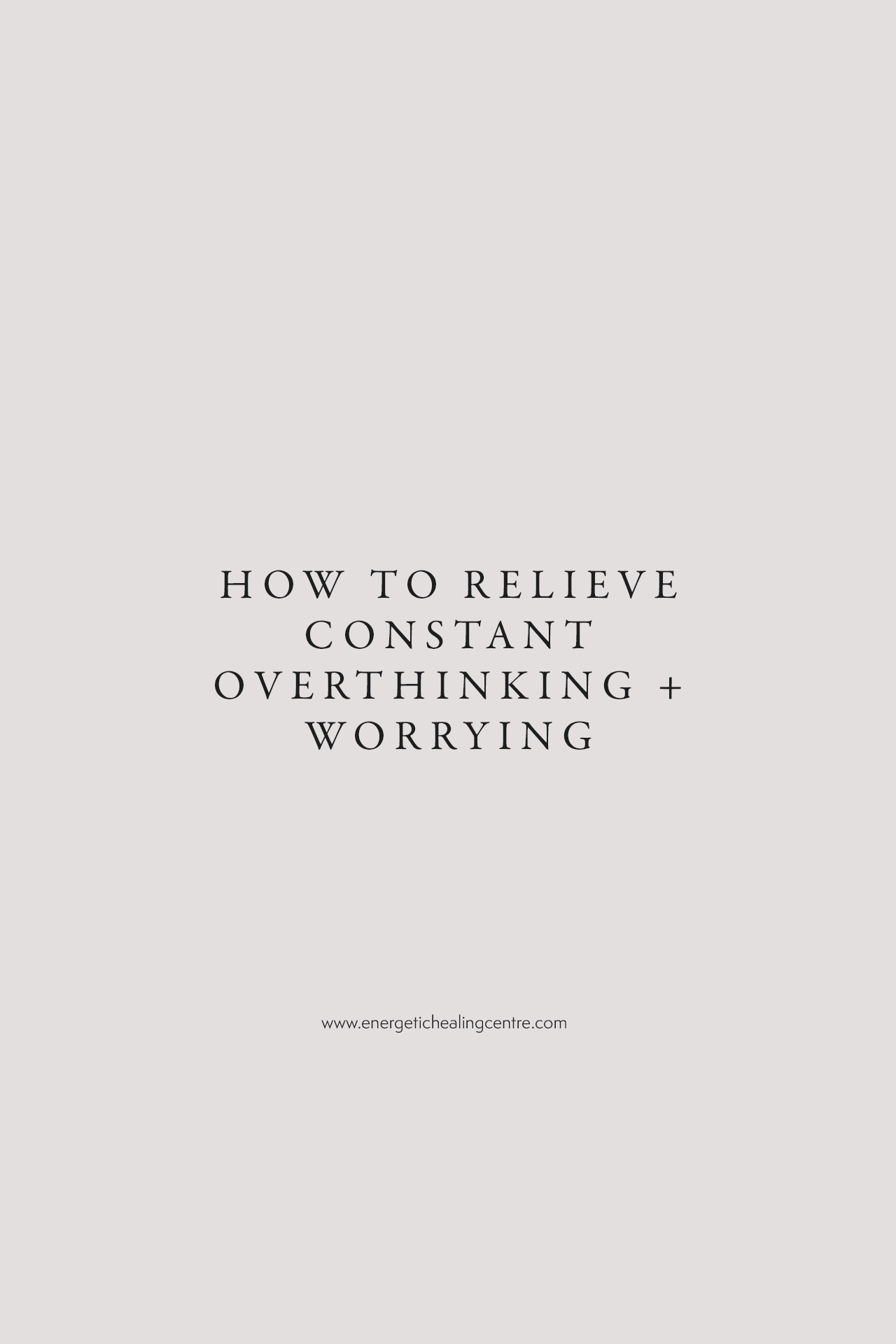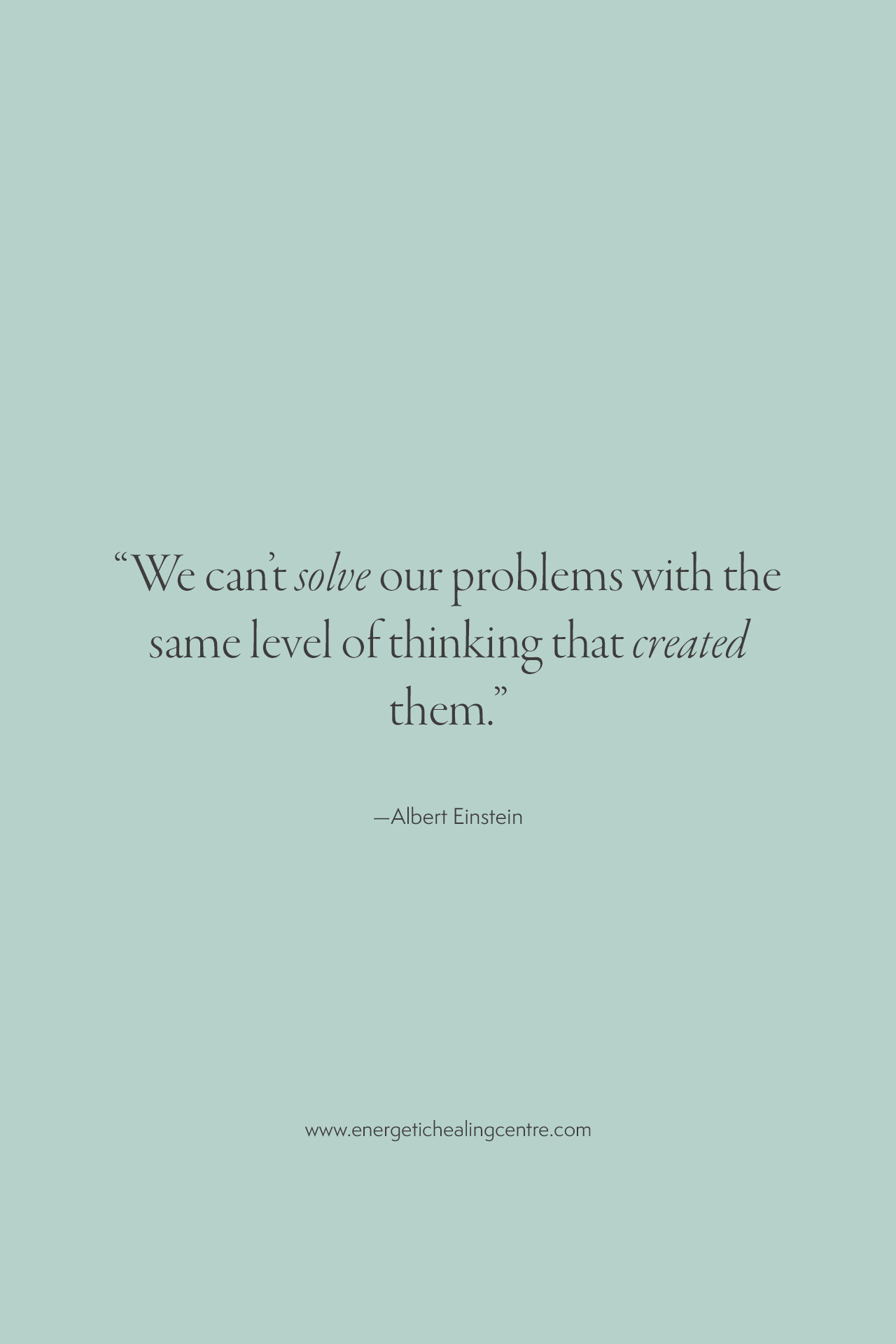Overthinking and worrying has become far too common and many people are so used to it they don’t realize they’re doing it or some don’t know how to find relief. The mind is supposed to think and has an amazing capacity to create thoughts, feelings and behaviors which transform into our experience of ourselves and our lives. The mind thinks, plans and prepares and can go in so many directions, that can lead into negativity, worry and overthinking, but we always have the ability to make a conscious choice on how we want to use our mind. Self awareness and mindfulness are very helpful tools to observe ourselves and our thoughts that can really help with reducing overthinking and worrying and the anxiety that stems from it. Below I’ve suggested a few ways to practice them.
Worry can be defined as thinking about future events leading to “what-if” scenarios by anticipating potential issues and circumstances. Of course, this tool can be helpful when we use it wisely, helping us to problem solve and navigate our lives so we can continue moving forward with ease. But when we start to ruminate or obsess on these “what-if” scenarios, we are overthinking the issue which creates stress and anxiety. We can also overthink the past, replaying scenarios and things you’ve said… mistakes, regrets or shoulda, coulda, wouldas.
When you’re experiencing persistent worrying and thinking, it can feel impossible to control. Replaying thoughts, worries and events over and over, going round and round in your mind, like a stuck record or hamster wheel. Ruminating thoughts make it difficult to concentrate and focus, preventing you from having a calm mind.
When you overthink an issue, it can feel like you’re being productive—even giving you the impression you are in control. But you risk getting stuck in a loop of negative thoughts and anxiety.
Signs of Overthinking and Worrying
- Inner turmoil
- Apprehension
- Brain chatter
- Difficulty Concentrating
- Difficulty Relaxing
- Mind on a hamster wheel
- Headaches, jaw tension
- “Buzzing” feeling in mind or body
- Trouble sleeping
- Mental strain
What is Self Awareness, and how can it help?
- Self awareness is the ability to notice your feelings, physical sensations, reactions, habits, behaviors and thoughts.
- It is the act of observing yourself.
- Being completely honest with yourself.
- No attachment to what’s right or wrong.
What is Mindfulness, and how can it help?
- Being fully present in the here and now
- Awareness of thoughts, feelings, sensations and environment with no judgment
- Non-reactivity
- Transforms how we relate to our experiences
Ways to relieve overthinking and worrying
Journaling
Writing down your worries allows you to get your thoughts out so you can reflect and move forward.
- What are your repetitive thoughts?
- Write out your positive thoughts and negative thoughts.
- Is that thought helping you or hindering you?
- If it’s not helping you, could you let it go?
- Can you do anything about these worries right now?
- What advice might a loved one give you about these thoughts/worries?
- Write out problem solving ideas about these worries that could be helpful.
Bach Flower Remedies
One of the modalities that I use to help my clients is called Bach Flower Therapy. I offer 1:1 sessions, but the Bach Flower Remedies were created as a self help system so anyone can access and use them with ease. Watch this video to find our which remedies can help you manage career stress:
Don’t know what Bach Flower Remedies are? Check out my 8 minute video, What Are Bach Flower Remedies?
Other ways to cope with overthinking and worrying:
- Meditation/Mindfulness Practice
- Yoga/Exercise
- Therapy
- Grounding & Being Present (Try my Grounding meditation here!)
- Repeating the Affirmation: “I am Present”
We all have so much stress in our lives on a daily basis which causes us to overthink and worry. It’s important to know that we also have the ability to experience a peaceful mind, it’s a choice. It takes incorporating new things into our lives that cultivate self awareness and mindfulness. It also takes practice.
“We can’t solve our problems at the same level of thinking that created them.” – Albert Einstein


